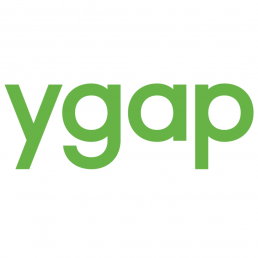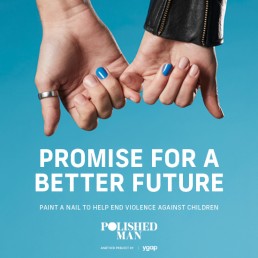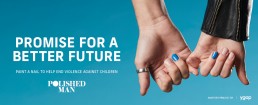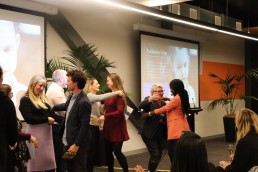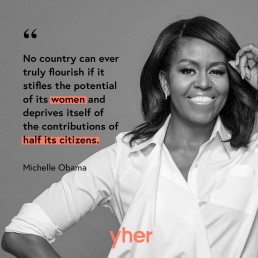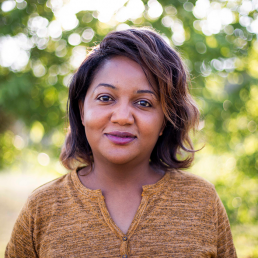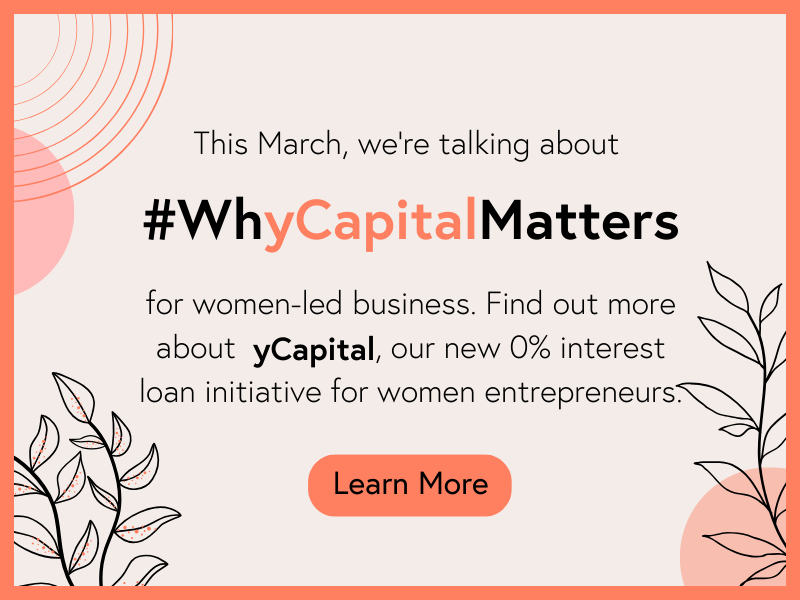The state of social enterprise in Kenya
The state of social enterprise in Kenya

By ygap Kenya Program Manager Carol Kimari.
The genesis of the social enterprise movement in Kenya can be traced back to the 1980s when the country began to experience significant economic restructuring. This is what was popularly known as the structural adjustment programs (SAPs). With reduced government expenditure in areas considered as essential social services, many non-state actors came up to plug into the gap created by these policy changes.
According to a study by the British Council conducted 2016 “State of Social Enterprise in Kenya,” at the time, there were over 44,000 social enterprises in Kenya. Since then, the growth has been significant, and the number could have doubled by now. The social enterprise ecosystem in Kenya is driven by young people under 35 years attributed to the high literacy levels and lack of employment opportunities.
Take an example of the last cohort of ygap 2020 accelerator; more than half of the entrepreneurs were people under 35 years. The primary objectives of these social enterprises are to respond to the needs in their communities; create employment, increasing financial inclusion, enabling small businesses create value, helping parents access better pre & post-natal care, addressing literacy levels especially in marginalized groups and communities, helping farmers access better markets and farm inputs, and helping young women access employable skill among others.
The greatest barrier to early-stage social enterprises in Kenya continues to be lack of access to capital. In Kenya, many financial institutions are reluctant to give financing to these enterprises. Most financial institutions feel that these enterprises are high risk owing to the fact that they don’t have assets they can attach to the loans. This has slowed down the growth of many enterprises. ygap Kenya, as an early startup accelerator tries to validate their impact and business models to make them more investable and attractive to financing entities. We do this by giving grants to test ideas/ products and overcome early stage growth barriers and connect them to growth funders.
However, although funding is one of the biggest barriers, the lack of government policy or legislation specifically aimed at social enterprises in Kenya is also a big challenge. There are small steps being made like changing the age of directorship in companies from 21 years to 18 years. This means younger people can own businesses without age limitation. This has led to more people registering businesses and according to the same report, State of Social Enterprise in Kenya, more women are running social enterprises. Such policy changes have seen almost half (44%) of the enterprises in Kenya are being run by women most of them under the age of 35 years.
Carol at the recent ygap Kenya Program

The rapid growth in the sector has seen the need to build apex bodies/ organizations that seek to support the sector players better realize their respective social missions in supporting social enterprises. These organizations support their members by organizing seminars where people can learn new ways of doing business, networking event and policy lobbying. Among them are Aspen Network of Development Entrepreneurs (ANDE), Project, East Africa Social Enterprise Network (EASEN) and the Social Enterprise Society of Kenya (SOSEK). All these have been instrumental in creating a more organized ecosystem. Member organizations like the Business Network International which is a business referral organization that sees only one organization working within a specific field being admitted to a certain chapter. This greatly favors social enterprises because of referrals from other members and reduced competition. Sankalp Africa summit is a global forum that has created an ecosystem of entrepreneurs, investors, corporations, multilaterals and policy makers who are committed to furthering the cause of development through entrepreneurship and innovation, and brings them together to initiate dialog and enable action through innovation and entrepreneurship at the base of the pyramid across five high impact sectors: Agriculture, Food & Rural Businesses, Education, Clean Energy, Health, Water & Sanitation, and Technology for Development. This year’s summit in Nairobi saw Ygap Kenya’s four entrepreneurs exhibit their work. This exposure is a follow up to the capacity building programs that Ygap takes the entrepreneurs through to make them investment ready.
As the Kenyan social enterprise space continues growing, it has attracted a host of social enterprises support mechanisms like; incubators, accelerators etc. Kenya Climate Innovation Centre, LakeHub (which was part of ygap 2020 accelerator), Intellecap are among the leading incubators in Kenya. We have also seen the emergence of new concepts like impact investing which is still gaining traction in the country. There are also plenty of co-workspaces in Kenya like the Kijiji that encourage social enterprises to thrive by offering affordable co-working spaces.
Finally, the emergence of social media as a marketing and communication tool has been a revelation for most of social enterprises. It is now the norm to see a social enterprise set up social media pages to share information and market their products either through Facebook or Instagram. For one of the enterprises we support, Soi Designs, the primary marketing tool is social media. This is great because most of them cannot afford traditionally mainstream marketing platform like newspapers, and magazines.
Social enterprises are rapidly growing in Kenya and these enterprises span out in almost all sectors of the economy- giving investors a cocktail of options to venture in. Adequate funding in social enterprises would provide the necessary leverage as most of them are at a tipping point.
Entrepreneurs from the ygap Kenya Program 2020

Launching the Gender Lens in Acceleration and Incubation Toolkit
Launching the Gender Lens in Incubation and Acceleration Toolkit
Evening the playing field for gender in incubation, acceleration and entrepreneurship - a reflection on GLIA by Audrey Jean-Baptiste.
At the Asia Venture Philanthropy Network South East Asia summit in mid February, we launched the Gender Lens in Incubation and Acceleration toolkit, an interactive resource for accelerators and incubators (intermediaries) to consider how we can make our work more accessible and inclusive of all genders. By being deliberate about this, as intermediaries we can use our unique position of power to drive gender equitable change in the world around us and increase our impact.
Why is it important for intermediaries to consider gender within the work that we do?
At present, entrepreneurship is an uneven playing field. In entrepreneurship ecosystems around the world, access to opportunities and resources, as well as being respected and heard, can vary depending on your gender. Often unconsciously, gender biases are influencing the way in which we make decisions, from how we’re distributing our investments to how we’re creating and delivering our programs, products and services. More often than not, these gender biases disadvantage women, and has meant that women, women-led ventures, and ventures that support women and girls, still don’t have the same opportunity to succeed.
This means that we’re still not realising the full economic and impact potential of entrepreneurship.
As intermediaries, we hold a unique position of power. We work directly and deeply with entrepreneurs, as well as the ecosystem that supports them. This means that we can put strategies in place to level the playing field for all genders within our organisations and programs, as well as influence ecosystem players to consider gender within their work, and founders to consider it in how they’re building their ventures.
How can we as intermediaries use our power to drive gender equitable change?
We can do it directly by creating equal access to our programs and organisations to all genders, and fostering an inclusive environment that responds to their needs and unlocks their skills, experience, and potential. The GLIA toolkit provides guidance for how we can go about identifying gender related issues within our work, and provides example strategies and frameworks that can be contextualised to address these.
As intermediaries, we can also play a role in bridging the demand and supply of capital towards entrepreneurship that drives gender equality. This can for example include increasing the investment readiness of women-led ventures, and providing deal flow for gender lens investors.
We can also do it indirectly by influencing the broader entrepreneurial ecosystem in our respective regions to consider gender within their activities, whether it’s our government’s policies or our investors’ investment theses, to promote larger-scale change.
What does it mean that ygap has been involved in this work?
It was important for this toolkit to be developed by intermediaries for intermediaries, for it to be truly valuable and practical. At ygap we recognise the importance of considering gender within our work as an intermediary as a key way for us to achieve our impact goals. We also see gender equality as a fundamental human right, and this is why we saw value in developing the GLIA toolkit. It is a first of its kind resource, that we hope can start supporting intermediaries in being deliberate about considering gender within their work.
At ygap, being deliberate about applying a gender lens to our work is what led us to create the yher program, an accelerator program that champions women-led impact ventures and adapts our proven curriculum to meet the specific needs of women founders. We developed the GLIA toolkit as part of DFAT Innovation Xchange’s Frontier Incubators program, in partnership with the Sasakawa Peace Foundation’s Asia Women’s Fund. It was developed over a 12 month period and was extensively tested by incubators and accelerators (see here) to refine and validate its content.
We look forward to seeing how this work is embraced and used by the sector going forward.
Building Bridges report- addressing the barriers faced by Refugee Entrepreneurs
Building Bridges Report - Addressing the barriers faced by refugee entrepreneurs
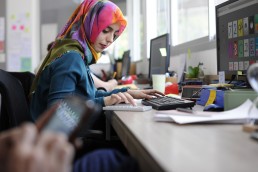
Supporting Refugee Entrepreneurs in the Victorian Start-Up Ecosystem
In 2019, the ygap Australia team was commissioned by LaunchVic to compile a report addressing the barriers facing refugee entrepreneurs in accessing support networks and resources in the Victorian ecosytem.
From this co-designed research and our work with diverse communities, we know that one of the big challenges is that there is not enough support, especially in the idea and validate stages, for migrant and refugee entrepreneurs.
And because at ygap we are all about solutions, we are extremely proud to present this report just after our launch of the First Gens 2.0 pre-accelerator in partnership with Catalysr and funded by Launch Vic which has been developed to bridge the gap between the ideation, validation and growth phases for migrant and refugee enterprises so that they can grow and thrive in the ecosystem.
Read our Building Bridges report here by following the link below:
ygap joins ANDE global network
Propelling impact ventures in emerging markets
ygap is pleased to announce it has become a member of the Aspen Network of Developing Entrepreneurs (ANDE). ANDE is the peak network for organisations working to support Small and Growing Businesses (SGBs) in emerging markets. ANDE has over 290 members working in over 150 countries and have supported more than 90,000 small and growing businesses to date.
Small and growing businesses in emerging markets are crucial to job creation, providing localised solutions to local problems, stimulating long-term economic growth, and producing environmental and social benefits. ANDE represents a best practice network of organisations using accelerator principles to assist in the support of SGBs across the world.
Within the wider scope of SGBs sit a more focused group of impact ventures; businesses that centre their core business around creating impact. Where SGBs support development outcomes in emerging markets through increased economic growth and employment, ygap’s unique value proposition is in the support of early stage ventures that are also working to actively transform their communities at a social level.
Since 2013, ygap has run 46 accelerator programs supporting more than 500 early-stage impact ventures across Kenya, South Africa, Bangladesh, Australia and the Pacific Islands. Becoming a member of ANDE underlines ygap’s commitment to continual improvement and excellence in our impact work.
‘Becoming an ANDE member means we become part of a global ecosystem of support for impact ventures through networking, partnerships and collaboration opportunities.’ says Simon Lee, ygap’s Head of Global Programs. ‘ANDE is the global peak-body for supporting impact ventures around the world. An ANDE membership provides ygap access to the best resources, support and networks in the space, allowing us to improve the support available for the early-stage impact ventures in our accelerator programs.’
Day-to-day, engagement with the ANDE membership will include capacity building through training programs and learning labs, knowledge sharing on impact metrics and assessment, and contributing to the growth of entrepreneurial ecosystems. It also means that ygap’s knowledge and expertise is being shared with the wider ANDE network, including ygap’s innovative work on gender and impact measurement.
ygap Newsletter - September 2019
Note from our CEO
Hello ygap Community!
To date, we have supported 532 impact ventures across Africa, Asia, the Pacific and here in Australia and through them, have positively impacted the lives of close to 1M people experiencing poverty.
Through our work, we learned that one of the root causes of violence against children is poverty.
Tomorrow is the official launch date of our Polished Man Campaign, sixth year running, and I couldn’t be more proud of the work of the team and their efforts.
It is through the commitment of the thousands of Polished Men and Women that we are able to continue to deliver the work that we do and help the most vulnerable members of our community, children.
Show your support by spreading the word, donating and signing up to the Polished Man 2019 Campaign.
From the impact arm of our work, we are thrilled to announce the successful completion of the third First Gens Program. This means 36 refugee and migrant-led social impact ventures have now gone through the program and are growing their impact for the local communities here in Australia.
This Thursday, 3rd October, we will see the most recent First Gens cohort take the stage and pitch their start-ups, to not only celebrate their progress but also for their chance to win a cash prize on the night.
I invite you to join us for this inspiring evening held at Goods Shed, Docklands, Victoria, where we will also have a really exciting announcement about the future of the program – RSVP your spot here.
As always, I thank you for your ongoing support and until next time, we will be right here Backing Local Change.
Manita Ray

Together We Can End Violence For Good
We believe in a world where no child suffers from violence, because it shouldn’t hurt to be a child, and we all have the power to change this.
Thanks to your support in 2018 we raised $1,701,764 and were able to channel these funds into trauma prevention and recovery programs for children who are at risk or have suffered violence.
Tomorrow is the official launch of Polished Man 2019 – help us make this Polished Man the biggest ever by signing up to polish a nail and take part at www.polishedman.com.
You Are Invited to the First Gens Showcase Event
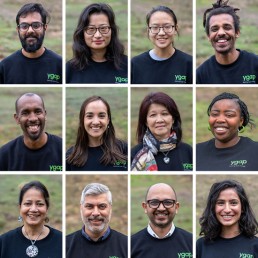
First Gens, as many of you may know, is our program specifically designed to support migrants and refugee-led ventures here in Australia which are creating positive social change for their communities.
You will hear from 12 inspiring social impact entrepreneurs pitch their early-stage ventures and ideas – to not only celebrate their progress but also for the chance to win a cash prize on the night.
These individuals have committed their lives to create the social change they believe is necessary in our world, and we are backing them every step of the way.
In addition to hearing these inspiring stories, we are very grateful and looking forward to having an impressive line-up of speakers taking the stage; Kate Cornick, CEO of LaunchVic, Judy Anderson, CEO of Startup Victoria, Jess Colgan, Director of yimpact, and Usman Iftikhar, CEO of Catalysr.
There’ll be plenty of time to network, however, spots filling up fast go ahead and reserve your complimentary seat for a feel-good evening not to be missed
RSVP via the link below.
Team Update - yher Pacific Program Manager- Talei Goater
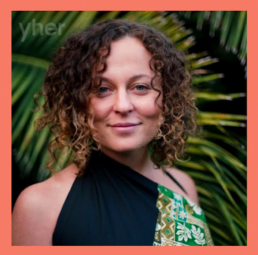
With ancestral roots planted in Fiji, Talei has spent two decades managing multifaceted creative projects across New Zealand, Australia and the Pacific Islands.
Her immersion into the region’s social enterprise ecosystem began twelve years ago when she established a community-led textile label and then managed the first Pacific Islands presence at Australia’s Fairtrade Fortnight.
Advocating profit for purpose ventures, blending traditional commerce, ethical trade and climate-friendly thinking into a stimulating tonic for positive change, Talei’s passion for the development of values-led business is evident in every part of her being.
We are thrilled to have such a talent on our team to pioneer the yher Pacific Program at such a critical time in the Pacific Islands.
Where are they now?
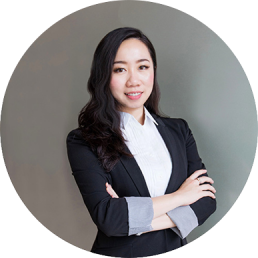
Jane Khou – Bring Me Home
Problem
It is estimated that in Australia, 44 million tonnes of food are wasted annually, costing approximately $8 – 10 billion per year. When food waste ends up in landfills, it generates large amounts of methane, a greenhouse gas more detrimental to the environment than CO2.
It has also been reported that 3.6 million people in Australia have experienced food insecurity in the last 12months. Alarmingly, of the 652,000 people who receive food relief from Food Bank agencies every month, 27% are children.
Solution
Bring Me Home is a platform that connects cafes and restaurants that have an excess amount of food, that would otherwise be thrown away, to potential customers who are interested in purchasing food at non-traditional eating times at discounted rates.
Success
Bring Me Home’s founder, Jane Kou, joined the ygap family in May 2018 as a First Gens Program participant when her startup was just an idea under development. ne year later, Bring Me Home has rescued over 2500 meals from going to waste, serving thousands of active users and 100+ participating venues in Melbourne. They were recently listed in SmartCompany as one of the top 10 startups in 2019 and are in the midst of raising $1M to expand their operations and launch in Sydney by the end of the year.
‘I want to take this opportunity to say – thank you. Thank you for offering your precious time connecting with me, supporting me, and most importantly, for believing in me.” – Jane Kou, founder of Bring Me Home, to the ygap Team.
For the very first time, Bring Me Home is offering an opportunity for the public to invest in their mission-driven growing venture with an Equity Crowdfunding campaign . If you are interested in becoming a shareholder of their mission-driven company fighting war on food waste – check it out!
Congratulations to Jane Kou and Bring Me Home – we are looking forward to seeing you pioneer the war on food waste!
ygap Newsletter - July 2019
Note from our CEO
Hello ygap Community,
In July we ran our first Ending Violence Against Children Accelerator (evac).
Poverty is one of the root causes of violence against children. While we continue to work towards our vision of a world without poverty, we created evac to support some of Australia’s leading impact entrepreneurs who are dedicating their life’s work to ending violence experienced by children here in Australia right now.
It is confronting to read the reality of the statistics about the rate of violence against children here in Australia. We are one of the more privileged countries yet the issue of violence against children continues to exist. Most when confronted look away – but we don’t and neither do our entrepreneurs. We try to do something about it in the way we know best.
We have all been children. We all know a child, Some of us, like me, have a child. We know how vulnerable children are and we know that no amount of violence against children is okay.
It was an honour to meet and support our evac ventures. We cannot wait to see their work grow in impact and one day see an end to violence against children.
Thank you also to everyone who supported our yher Appeal last month. This support enabled us to roll out our first full yher Pacific Program .
Thank you again for supporting the work that we do, until next time, we will be right here Backing Local Change.
Manita Ray
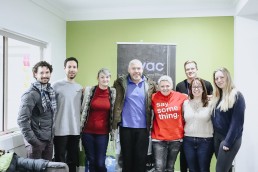
The First Ending Violence Against Children Accelerator
Ending Violence Against Children Accelerator
Society is measured by the way we treat our most vulnerable members. If that is the case, Australia is not measuring up. Before the age of 15, one in six girls and one in nine boys will experience sexual or physical violence. Violence against children takes many forms: including physical, sexual, and emotional abuse, and may take a more insidious form through neglect or deprivation.
The impact entrepreneurs who participated in our first evac accelerator have demonstrated an outstanding commitment to ending violence against children through their ground-breaking approaches.
Hailing from New South Wales, Queensland, Western Australia, and Victoria, these impact entrepreneurs are tackling this pressing issue from all angles.
- Rachel Downie with Stymie – Audience Vote Winner
Problem
Suicide is the leading cause of death in Australia for people aged 15-44.
Solution
Stymie is an anonymous, online reporting platform implemented in schools and made available to the community. The school receives anonymous messages from community members and students alike regarding children and adolescents who have suicidal ideations, been engaging in self harm, been sexually assaulted, and been bullied, or are at risk of harm. The team trained to respond develops an intervention based on the information received, disrupting the cycle of harm.
- Chris Boyle with Commsync Foundation
Problem
Over the last decade the number of child abuse cases reported to the child protection system across Australia have tripled.
Solution
CommsyncAlert has developed a wearable technology which transmits live audio and location at the touch of a button or in response to a voice command. This alerts pre-identified supporters to call triple zero or respond in the way they see fit.
- Liz Walker with eChildhood
Problem
Minors in Australia currently have unfettered online access to hardcore pornography. The increase in availability of pornography is related to a rise in child on child sexual abuse, mental health issues, sexual assaults, distortion of adolescent sexual scripts, child porn addiction, and online grooming.
Solution
eChildhood equips carers and supporters of children with a full understanding of pornography and its detrimental effects. eChildhood also provides age-appropriate strategies and offers guidance on how to best support minors negatively impacted by pornography.
- Ashlee Crane with Jasiri Australia
Problem
One in three Australian women has experienced physical violence since the age of 15 and young women are more likely to experience physical or sexual violence than older women.
Solution
Jasiri Australia offers two main programs: Self Defence and Girls Takeover Parliament
(GTOP). The Self Defence Program offers a comprehensive curriculum consisting of martial arts, de-escalation techniques, and psychological awareness across five levels. It is both preventative and restorative, with a focus on psychological healing and community building. Upon completion of the course, participants are invited to join the GTOP program, Jasiri’s leadership initiative.
- Brandon Friedman with Elephant Ed
Problem
98% of students have said they feel uncomfortable talking about sex education and many teachers are forced to teach the subject with little to no preparation or experience.
Solution
As an outsourced provider with an in-house feel, Elephant Ed eases the burden of maintaining comprehensive, relevant, and age-appropriate sex education in schools. Elephant ed is reinvigorating the stale sex education of the past in three key ways: engaging content, a lively delivery, and relatable people.
- Dayna Russell with Restoring Hope
Problem
Before their 18th birthday, one in six boys and one in three girls will experience sexual abuse in Australia. When these boys and girls are first brought to the authorities, they often have their clothing and personal items removed for forensic testing.
Solution
While Restoring Hope recognises that they are not in the position to eradicate sexual abuse itself, they are able to provide immediate support and care to survivors. Restoring Hope provides crisis care packs to victims of sexual abuse which can enable them to begin their healing journey as soon as possible.
yher Pacific Accelerator
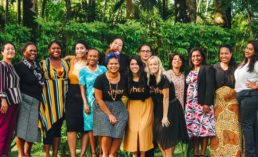
After the success of the yher Appeal, our team in the Pacific launched the first fully-scaled yher Pacific Program in mid-july. Following an extensive recruitment drive, we selected 11 local female impact entrepreneurs from Fiji, Solomon Islands, Kiribati, Samoa, Papua New Guinea and Tonga.
Their impact ventures were chosen for their impressive contribution towards achieving the following United Nations Sustainable Development Goals.
After the program, Audrey Jean-Baptiste – ygap Program Manager and yher Facilitator – met with a number of the local Fijian and regional organisations to discuss how we can further collaborate to develop an accessible, inclusive and self-sustaining entrepreneurial ecosystem across the region. Audrey was also invited to represent ygap in the UN Economic and Social Commission for Asia and the Pacific (ESCAP) which is Canada-funded project consultation on Catalyzing Women Entrepreneurship in Fiji. The four year project focuses on building a Gender-responsive entrepreneurial ecosystem, developing innovative financing mechanisms and creating an enabling environment for ICT-empowered women entrepreneurs.
These are really exciting times for the yher Program and for our continuing involvement in the gender space, for further information feel free to contact audrey@ygap.org.
Where are they now?

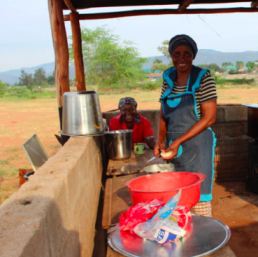
Our ygap impact entrepreneurs never cease to amaze us with the work that they do. This month we (re)introduce Louise Williamson, ygap South Africa 2017 Alumni, with her venture Sustainability Professionals whose most recent impact figures are definitely worth your attention!
The Problem
36% of the rural South African population relies on wood fuel for cooking resulting in 36,000 cooks suffering lung and eye diseases from the smoke.
Solution
Louise developed the Mashesha stove, which has three benefits:
- Burns with a clean hot flame halving the fuel and cooking time.
- Using briquettes made from waste cardboard reducing waste and pollution.
- Creating a simplified production of the briquettes allowing for work opportunities inclusive of people with disabilities.
Louise joined the ygap South Africa Program in February 2017 and received a $25,000 growth grant in January 2018. She set herself a benchmark impact figure of 40 lives, which has grown by a landslide amount of 1150%, impacting 500 lives at the most recent reporting period.
“ygap was the first business accelerator I attended and I really appreciated the assistance with fast-tracking on learning how to set up a business model, learn how to pitch, and most especially how generous ygap was with sharing success stories and failures of entrepreneurs so that we could learn from their experiences and guidance.’’- Louise Williamson
ygap Newsletter - June 2019
Note from our CEO
Hello ygap community,
It is with great honour and gratitude that I mark my first 12 months as CEO of ygap. It has by no means been an easy year (we don’t do easy at ygap!) but together with my incredible team and our partners, we are ready to charge in to the new financial year.
Thank you for your ongoing support and commitment to ygap as we continue to expand and grow our impact in the regions that need it most. We are so proud of the achievements over the past year and look forward to sharing our annual impact report with you shortly.
Many of you would have noticed, we ran our first program based fundraising appeal with an ambitious goal of raising $150,000 towards the launch of the yher 2019 global Program.
This was the first time that we asked our community to support one of our impact programs and we are so grateful to see a strong commitment raising $143,433 for the emerging female leaders in developing regions.
It has also been full steam ahead in all other areas of our work:
- We ran our third First Gens accelerator in Seymour, with 12 impressive migrant and refugee founders tackling local problems in their communities.
- We recruited six of the most promising social impact ventures which are focused on ending violence against children for our first evac (ending violence against children) accelerator in July
- We brought the entire impact team, board and impact committee together to start our work on our strategy for the next few years.
- We have just wrapped up the first part of the Gender Lens Incubation and Acceleration Toolkit Pilot, where 6 intermediaries from across SEA appointed Chief Development Officer; Victoria Cosgrove, Campaign Manager; Carolyn Dimech; and Events & Ambassador Manager; Georgia Prescott.
Thank you for being on this journey with us! Until next time, we will be right here Backing Local Change.
Kind regards,
Manita Ray

Our Third First Gens Accelerator
After a thorough selection process, we recruited 12 of the most promising social impact entrepreneurs for the third First Gens Cohort.
It is a unique opportunity to see 12 individuals from all walks of life; different backgrounds, ages, genders and dreams, coming together under one roof to tackle some of Australia’s most prominent problems.
Their visions and ventures ranged from focusing on water sanitation to financial literacy, to employment opportunities.
These inspiring entrepreneurs showed us the power of unity and collaboration as we dove deep into their business models. As much as we were the facilitators for them, they all worked in a peer to peer feedback and review model, proven to be the most powerful approach for redefining business models focused on social change.
The entrepreneurs have now been matched with mentors as they enter the support phase of the program in preparation for the Showcase Event later this year.
For more information on the First Gens Program, upcoming events and how you can be involved contact adelide.mutinda@ygap.org

Our Third First Gens Accelerator

The Ending Violence Against Children (evac) Accelerator has been specifically designed to support social impact ventures focusing on trauma prevention and trauma recovery programs for children who are at risk of or have suffered violence.
Through supporting close to 500 entrepreneurs, we have learned that the entrepreneurs within the same sector, leverage from shared experiences, challenges and learnings. By creating an environment where they all come together in a peer-to-peer accelerator model, they have the potential to further strengthen their ventures.
We found six of the most powerful ventures in this sector for our first evac program:
-
Chris Boyle with Commsync Foundation
-
Rachel Downie with Stymie
-
Liz Walker with eChildhood
-
Ashlee Crane with Jasiri Australia
-
Brandon Friedman with Elephant Ed
-
Dayna Russell with Restoring Hope
We invite you to meet these entrepreneurs at our ‘Showcase’ on July 18th, to hear about the powerful work that they are leading in ending violence against children here in Australia.
Follow this link for more information about the event or contact sydney.mclennan@ygap.org with any questions you may have.
Meet our Newest Team Members!

What are we looking forward to this month…
– The yher Pacific team will be uniting in Suva, Fiji, talking to our local partners about the upcoming delivery of the program and other collaborative development projects.
– Our first ever evac Accelerator running mid-July facilitated by a long-term ygap friend and internationally renown superstar, Louka Perry!
– Simon Lee, our GM of Impact, coming home from holidays. #HurryUp
ygap’s yher Appeal - Empowering Women, Ending World Poverty.
ygap’s yher Appeal - Empowering Women, Ending World Poverty.
Opportunities should not be determined by your geography or gender. However, the reality is that two out of three girls are denied an education and of the available funding for businesses around the world, only 3% goes to ones founded by females.
The cherry on top of this disappointing collation of statistics for us was when the World Economic Forum recently released the fact that at this rate it will take 108 years to achieve gender parity and in the mean-time, the global economy is losing trillions of dollars every year.
Men and women are impacted differently by poverty, likewise, they respond differently when receiving an income - with women reinvesting 300% more into their families and communities than their male counterparts.
After spending the last ten years running over 45 accelerators around the world with a gender-neutral approach, our intention was not to discriminate. However, with recent research indicating that this “gender neutral” approach in the social sector underserves women in patriarchal societies - paradoxically, women were still missing out on opportunities.
Go figure.
So at ygap, instead of just talking about this injustice and gap in opportunities, and waiting for someone bigger than us to create this change, we did something about it by launching yher.
yher is a female-focused program that is specifically designed to find the most promising emerging female leaders in developing regions and empower them with access to training, mentorship and access to funding so that they can grow their social impact.
We knew that by investing in women, there would be a significant flow-on effect for societal change in their communities.
During the yher pilot phase in 2017-2018, our team received an overwhelming 847 applications confirming the demand for the program and we went on to support 63 emerging female leaders across Africa, the Pacific and South Asia addressing the UN Sustainable Development Goals.
One of of the women who applied to our yher program was Muzalema Mwanza who had developed a social impact venture, Safe Motherhood Alliance, ensuring safe conditions for mothers and their babies at the time of childbirth.
With the SubSaharan region being the home of 50% of the world’s infant mortalities due to unsterile birthing environments, Muzalema recognised that these were preventable deaths in her community and she couldn’t simply stand by and allow them to happen.
With the development of her home birth kit, Muzalema has not only offered training and employment opportunities, she has also assisted in delivering over 1,000 babies. That’s one woman impacting over 1000 mothers and their babies, and she has only just begun her social impact journey towards a world free of avoidable deaths related to childbirth.
She had a solution to a local problem, all Muzalema needed was someone to find her, believe in her and back her. This is just one social impact entrepreneur’s story of the success that comes with backing local change, there are 453 more stories just like this at ygap.
Unanimously across every benchmark, nations that educate their women and girls end up being more successful in two ways - one being basic fairness and decency, the other being large social and economic returns.
It’s a no-brainer: empower women, end world poverty.
Support us in rolling out the global yher program, by donating before June 30th our cornerstone partner will triple the impact of your donation.
#WorldRefugeeDay - Recognising the Strength, Courage and Resilience.
#WorldRefugeeDay is an opportunity for all individuals, groups and organisations to take a moment to recognise the strength, courage and resilience of the millions of refugees around the world.
In 2018 we had the privilege of meeting an inspiring man by the name of Hedayet Osyan (pictured below), a refugee from Afghanistan whose long journey to Australia was full of horrific hurdles.
Hedayet participated in our First Gens Program where we saw his passion and strength in creating employment opportunities for other refugees and migrants through his successful and growing social impact venture - Nick's Tiling.
"When I was in Afghanistan I hadn’t this freedom and in here I have everything. There’s massive opportunity for every people, there’s equality, there’s freedom and the life is really easy here.
"I’m really happy and I really appreciate the Australian Government, the Australian people who saved my life and I’m always trying very hard to give something back to Australian people, that’s my responsibility because they saved my life."
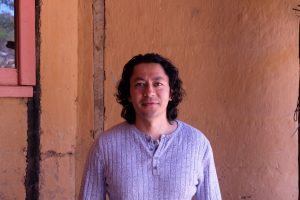
As the human race evolves, we are unfortunately witnessing the highest level of displacement on record with 68.5million people forcibly displaced around the world because of persecution, conflict, violence or human rights violations.
This is three times the population of Australia.
Here in Australia, where 28% of our population is born overseas, we don’t do nearly enough to raise awareness of the strength of migrant and refugee entrepreneurship, nor do we encourage people from other countries to start ventures here, or help them develop skills to build wealth for themselves and the community through self-employment.
Multiculturalism is about diversity, which in turn is about better creativity and decision-making. In order to attract more innovative ideas and grow our nation, we need to share the stories of the migrant-led business, to inspire aspiring migrant entrepreneurs and the broader community.
This is where a program like First Gens step in.
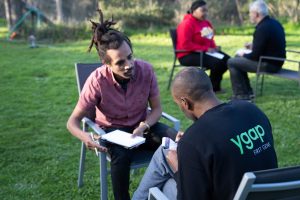
One of the most beautiful moments for us in facilitating the First Gens program for migrant and refugee-led social impact ventures, is when we have the privilege of witnessing a group of individuals from all different cultures, backgrounds, ages and genders, sitting together under one roof collaborating on how to best approach some of the local challenges here in the country.
Australia’s biggest point of difference in the global arena is its multiculturalism. When we all realise that embracing migrants and refugees isn’t just the right thing to do, but it is also a competitive strength in global business, innovation and entrepreneurship, that is the day when the local communities will win and the world will be inspired to unite as one human race.
Her Story - Helping 1,000 Mothers and Babies
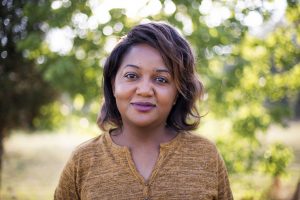
yher Story - The inspiring story of an innovative solution safely delivering over 1000 babies in the region that needs it most.
Imagine being eight months pregnant and preparing to go to the hospital to give birth to your first child, only to be given a list of birthing materials you’ll need to source first. From gloves to surgical blades, to disinfectant, these items are not easy to find in Zambia, especially when you are from a remote village, let alone from a low socio-economic background.
With more than 50% of the global infant mortality being concentrated in Sub Saharan African region, with a big part of the problem being a lack of access to sterile supplies.
Muzalema Mwanza was one of the 63 female social impact entrepreneurs who came through ygap’s yher Africa Pilot accelerator in 2018. Through her venture, Safe Motherhood Alliance, Muzalema has developed an innovative baby delivery kit which ensures safe conditions at the time of childbirth.
Her innovative solution has not only offered training and employment opportunities but has also assisted in delivering over 1,000 babies. Muzalema had a solution to a local problem, all she needed was someone to believe in her and back her.
This is one entrepreneur’s story of the success that comes with backing local change, there are 453 more stories at ygap.
ygap needs your help to support the launch of yher, a program specifically designed to support female-led social impact ventures just like Muzalema's.

